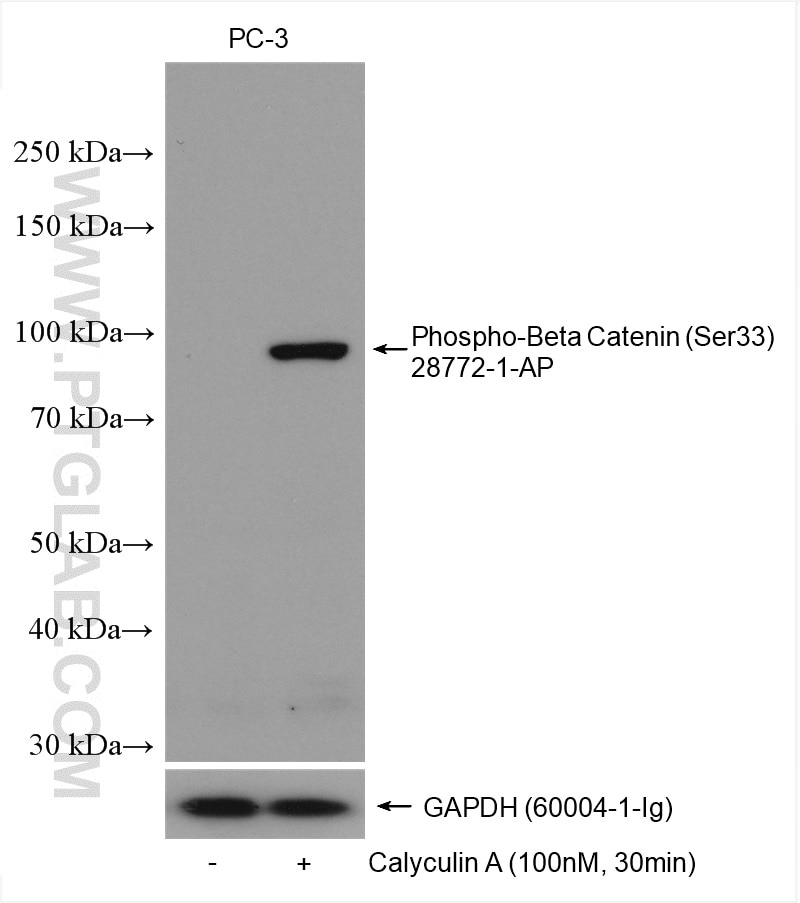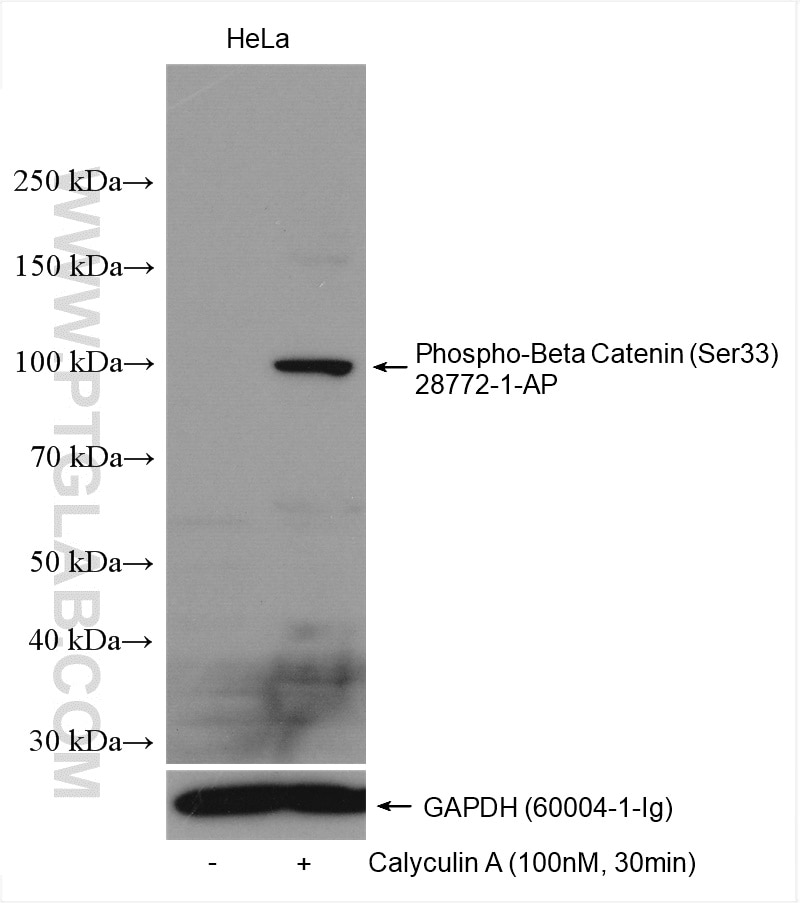Phospho-Beta Catenin (Ser33) Polyklonaler Antikörper
Phospho-Beta Catenin (Ser33) Polyklonal Antikörper für WB, Indirect ELISA
Wirt / Isotyp
Kaninchen / IgG
Getestete Reaktivität
human
Anwendung
WB, Indirect ELISA
Konjugation
Unkonjugiert
Kat-Nr. : 28772-1-PBS
Synonyme
Geprüfte Anwendungen
Produktinformation
28772-1-PBS bindet in WB, Indirect ELISA Phospho-Beta Catenin (Ser33) und zeigt Reaktivität mit human
| Getestete Reaktivität | human |
| Wirt / Isotyp | Kaninchen / IgG |
| Klonalität | Polyklonal |
| Typ | Antikörper |
| Immunogen | Peptid |
| Vollständiger Name | catenin (cadherin-associated protein), beta 1, 88kDa |
| Berechnetes Molekulargewicht | 781 aa, 86 kDa |
| Beobachtetes Molekulargewicht | 90-100 kDa |
| GenBank-Zugangsnummer | BC058926 |
| Gene symbol | Beta Catenin |
| Gene ID (NCBI) | 1499 |
| Konjugation | Unkonjugiert |
| Form | Liquid |
| Reinigungsmethode | Antigen-Affinitätsreinigung |
| Lagerungspuffer | PBS only |
| Lagerungsbedingungen | Store at -80°C. 20ul Größen enthalten 0,1% BSA. |
Hintergrundinformationen
Beta Catenin/β-catenin, also known as CTNNB1, is a key downstream component of the canonical Wnt pathway that plays diverse and critical roles in embryonic development and adult tissue homeostasis. The N-terminal (1-49 amino acids) of β-catenin is the key region for its stability and the degradation by ubiquitin-proteasome system, and phosphorylation of β-catenin at the N-terminal Ser33, Ser37, Thr41, and Ser45 promotes its ubiquitination and degradation (PMID: 31930681). Phosphorylated β-catenin is targeted for ubiquitination-dependent proteolysis.





